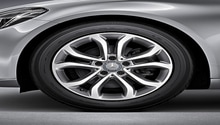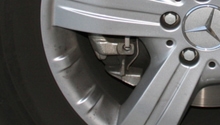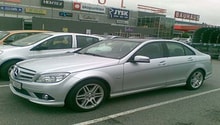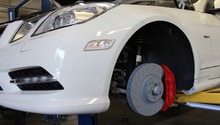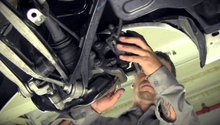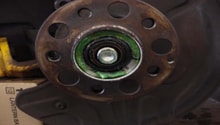Mercedes-Benz E-Class: Why Are My Wheels Squeaking?
Squeaking can be caused by multiple reasons and by multiple components. Find out what could be causing that awful racket in your Mercedes-Benz.
This article applies to the Mercedes-Benz E-Class (2010–present).
There are few things less annoying than wheels that squeak. But whether it's your car or the car that just pulled up next to you at the light, something must be done! Wheels squeak due to multiple reasons and on different occasions. Maybe it only happens while braking, or when you turn, or sometimes even while driving down the street. We've compiled the top reasons why wheels usually squeak in a Mercedes-Benz E-Class.
Materials Needed
- Floor jack
- Jack stand
- Lug nut wrench
- 12mm and 15mm sockets
- Ratchet wrench
Is There Squeaking While Driving Over Bumps?
Everything in a car has a projected service life estimate, and once shock absorbers reach their lifecycle, they could start squeaking when being forced up and down by the car's suspension. You can diagnose this by pushing down on the car on each one of the four corners of the car until you hear which one of them (or all) squeak. Then you must replace the shock or the suspension component that needs to be lubed or replaced.

If that doesn't take care of it, keep diagnosing.
Does the Sound Change When Turning?
The wheel bearings could be worn out.
The differential in your Mercedes-Benz is designed to let the car handle at its finest by letting the inside wheel turn slower than the outside wheel while going through a turn. The differential turns the axles in which the tires rotate on, which then rely on wheel bearings to make sure the wheels spin as they should. Sometimes these bearings run out of grease and start eroding away. Once the bearings erode they can make loud squeaking noises while turning the car. It is recommended to visit the dealer or a repair shop for professional diagnosing or replacing wheel bearings.

If they don't squeal while turning, then move to the next diagnosing step.
Does the Sound Change When Braking?
Your brake pads or rotors could be going out.
Most of the time when there is a squeak or squeal coming from the wheels, nine out of ten times it's brake related. Whether the brake pads are worn out, or the pad may have been unsettled from its place inside the caliper, the squeaking it produces can be quite loud.
- Jack up the car and remove the tire.
- Inspect brake pads for alignment without removing the caliper.
- If the brake pad looks unsettled, remove caliper and reset. Replace the brake pad with a new one if needed.
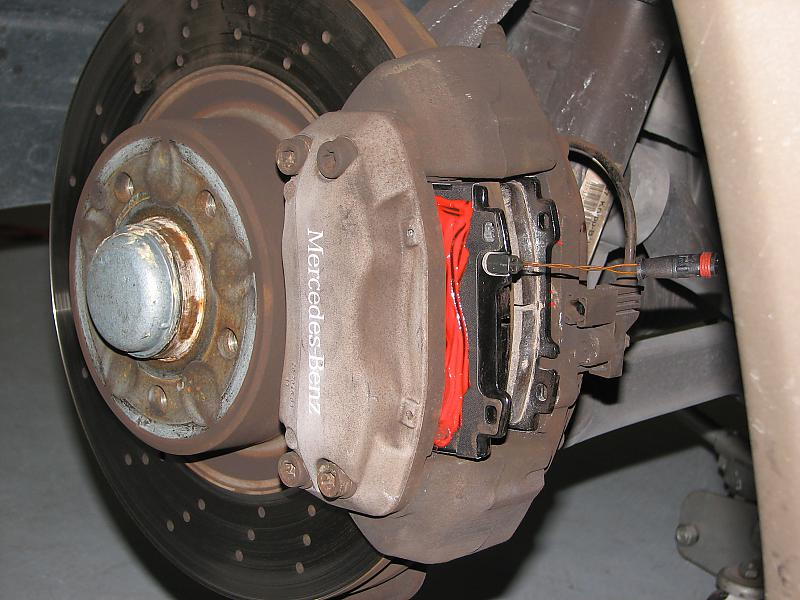
Figure 3. Brake pad and rotor.
If the brake pads are not the culprit then continue diagnosing.
Does It Squeak During Cold Weather?
The rubber joints may lack lubrication.
Cold weather represents a whole different set of challenges for cars, but specifically to high friction and high stress components. There are multiple rubber joints in the suspension and steering components which have lube or grease that can dry up as temperatures drops. You can always check these by removing the tires and looking to find the rubber joints or seals covered in heavy grease. If they aren't greased up, lube them or take it to the repair shop so it can be done properly. This should get rid of most annoying cold weather squeaks.
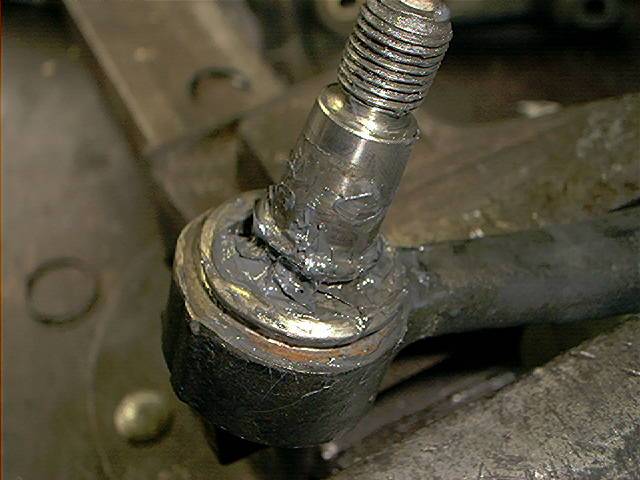
Related Discussions
- Diagnose Squeaky Shocks on Mercedes-Benz - MBworld.org
- Squeaky Front Wheel Bearing - MBworld.org
- Squeaky Bushings in Cold Weather - MBworld.org

